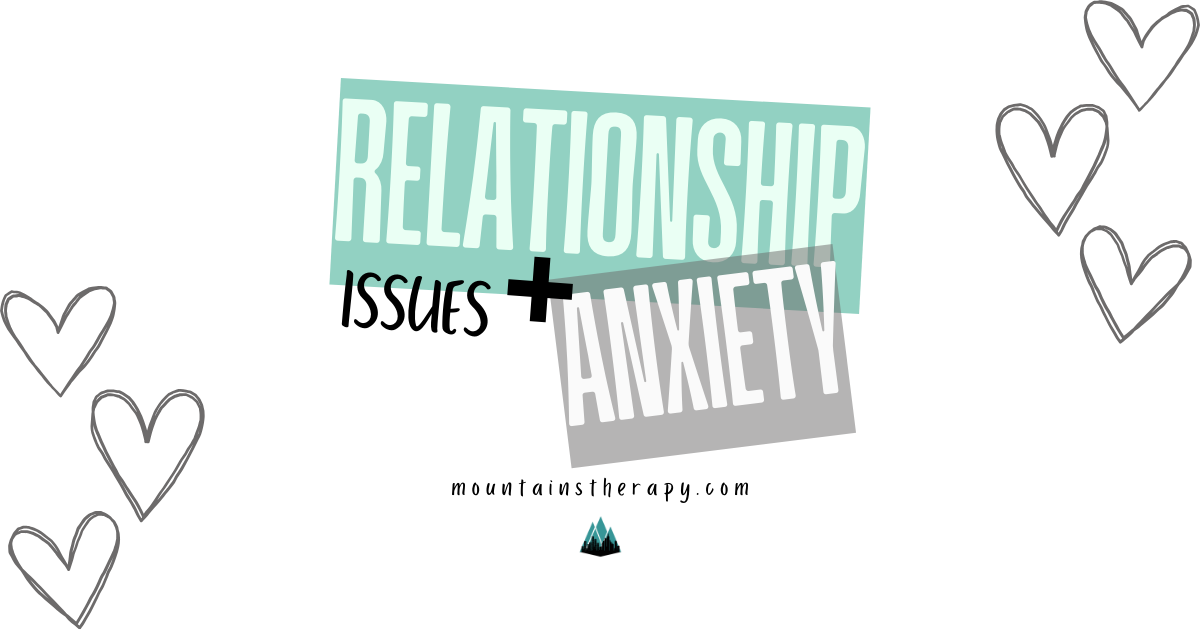Overcoming Relationship ISSUES: Anxiety Treatment Plans for Healthier Connections

Learn more about Counseling for Relationship Anxiety here.
In This Blog, You’ll Learn:
What relationship anxiety is and its common signs
Key steps to manage relationship anxiety effectively
How therapy can help build healthier connections
Are you struggling with relationship anxiety? You’re not alone. At Mountains Therapy in Montclair, NJ, our relationship anxiety therapists and counselors are here to help. This common challenge can affect individuals and couples alike, but with the right support and tools, you can take steps toward healthier, more fulfilling connections.
What Does Relationship Anxiety Look Like?
Relationship anxiety can manifest in various ways, often leaving individuals feeling overwhelmed and uncertain about their connections. It might include excessive worrying about a partner’s feelings, fearing rejection or abandonment, or overanalyzing every interaction. Physical symptoms, such as restlessness, increased heart rate, or difficulty concentrating, can also accompany these emotional struggles.
Where Does Relationship Anxiety Come From?
Relationship anxiety often stems from past experiences, such as childhood attachment issues or previous relationships that ended poorly. It can also be rooted in low self-esteem or fear of vulnerability. Understanding where this anxiety originates is a crucial step in managing it effectively. A relationship anxiety therapist at Mountains Therapy can help you explore these roots and develop strategies to address them.
Why Does Relationship Anxiety Happen?
This form of anxiety occurs because relationships require trust and vulnerability, which can feel daunting for those who fear loss or rejection. It may also arise from unmet emotional needs, miscommunication, or external stressors impacting the relationship’s dynamic. Relationship anxiety counselors at Mountains Therapy in NJ can guide you through these challenges and help you build stronger emotional resilience.
How to Explain Relationship Anxiety to Your Partner
Open communication is vital in addressing relationship anxiety. Share your feelings with your partner, emphasizing that your concerns stem from personal experiences rather than mistrust. Use phrases like, “Sometimes I overthink things because of my past, but I’m working on it.” This approach fosters understanding and collaboration in finding solutions. Many relationship anxiety therapists recommend practicing these conversations with a counselor to build confidence.
When Does Relationship Anxiety Go Away?
The duration of relationship anxiety varies from person to person. With the right tools and support, such as therapy and effective communication, it can significantly diminish over time. Learning to recognize triggers and implement coping mechanisms is key to long-term improvement. Working with a relationship anxiety therapist at Mountains Therapy can accelerate this process.
Can Relationship Anxiety Be Cured?
Relationship anxiety may not completely disappear, it can be managed effectively. Therapeutic approaches, such as Cognitive Behavioral Therapy, mindfulness practices, and relationship counseling, provide valuable tools for reducing anxiety and building healthier connections. Relationship anxiety counselors at Mountains Therapy specialize in creating customized treatment plans that fit your unique situation.
Relationship Anxiety Treatment Plans: Key Components
A comprehensive treatment plan for relationship anxiety typically includes the following:
- Self-Awareness and Education: Understanding your triggers and thought patterns can help you address anxiety at its root.
- Effective Communication: Practice open and honest conversations with your partner, fostering a safe space for both parties.
- Therapeutic Support: Seeking therapy, whether individual or couples, provides strategies tailored to your unique needs.
- Mindfulness and Stress Reduction: Techniques like meditation, journaling, and deep breathing can reduce overall stress levels.
- Healthy Boundaries: Learning to set and respect boundaries strengthens relationships and reduces anxiety.
Practical Steps for Implementing Treatment Plans
- Identify Triggers: Reflect on moments when anxiety peaks and discuss them with your therapist or partner.
- Develop Coping Strategies: Use tools like grounding exercises or affirmations to manage anxious thoughts.
- Strengthen Emotional Bonds: Prioritize quality time with your partner to build trust and intimacy.
- Monitor Progress: Regularly evaluate your feelings and celebrate improvements, no matter how small.
Relationship anxiety doesn’t have to dictate the course of your relationships. Are you reedy to find a relationship therapist near me? If so, Mountains Therapy in Montclair, NJ, our team is dedicated to helping you embrace tailored treatment plans and proactive strategies. Contact us today to start your journey toward deeper connections and a more fulfilling emotional life.










